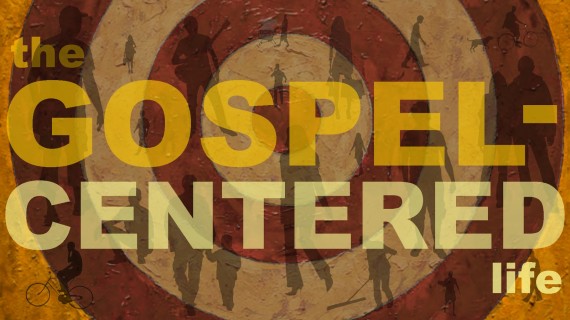
Is this the same preaching, when Christ says to the rich young man, “Sell all that thou hast, and give it to the poor;” and when the priest says, “Sell all that thou hast and… give it to me”?
— Søren Kierkegaard, Attack Upon Christendom
Liberating you from bad ideas about God
Stop relying on pastors and Bible teachers to tell you what the Bible means.
Read this book and learn to study the Bible for yourself. Available now on Amazon.
The book discussion questions with each chapter to make it perfect for a home study group. There is also a LONG appendix on how to understand the violent passages in Scripture.

Is this the same preaching, when Christ says to the rich young man, “Sell all that thou hast, and give it to the poor;” and when the priest says, “Sell all that thou hast and… give it to me”?
— Søren Kierkegaard, Attack Upon Christendom
Ultimately, evangelism is not about looking to heaven and to the afterlife as the cure for all of life’s problems. The central message of evangelism must not be “Get right with God because then eternity will be grand.” While the Gospel contains truth about heaven and eternity, it also focuses on life here on earth.
The Gospel contains numerous truths about loving one another, taking care of our neighbor, looking after our family, and serving those in need. If we are ignoring these aspects of the Gospel, we are not living or obeying the entire Gospel, but are instead using the hope of heaven as a way to escape the responsibilities of life on earth.

In his book Naming the Powers, Walter Wink put it this way:
Christian evangelism has all too often been wedded to a politics of the status quo and merely serves to relieve stress by displacing hope to an afterlife and ignoring the causes of oppression.

If evangelism is about all of life (as we saw yesterday), then evangelism is not a “one time event.” Evangelism never stops.
Just because someone “believes in Jesus” does not mean they have been “evangelized.” Again, if the Gospel is about how we live and act in all of life, then evangelism is also about how we live and act in all of life. Evangelism isn’t over with someone just because they believe in Jesus. Before a person got to that point, evangelism had been going on for a very long time, and will continue to go on for the rest of that person’s life.
Let me put it more bluntly. You and I are not yet evangelized. Sure, we may believe truths about the Gospel, but if the Gospel is about all of life, and seeing the rule and reign of God expand in our life, then we have not been fully evangelized until the rule and reign of God is complete in our lives, and that will never happen this side of eternity.
I suggested yesterday that the Gospel is about all of life, and seeing the ever-increasing expansion of the rule and reign of God in our own lives. If this is true, in what we say, what we do, and how we act, then what does this mean for evangelism?

Well, it might be helpful to note that in Scripture, the words evangelism and gospel are essentially the same words. Frankly, I wish our Bible translators had shown this connection better, as it would have cleared up a lot of confusion about what the Gospel is and how to do evangelism. Both words come from the Greek root evangel. Our word evangelism is not even a translation from the Greek! And as for the word “Gospel,” it is not the best translation either, but is a hybrid of Old English and German and means “good story” or “good message.”
So the problem with translating the evangel word family is that there are not any good English words to translate it to. In the days of Jesus and the apostles, evangel referred to a good message which had immediate and lifelong positive implications for those who heard it. It was an announcement of liberty to the captives and freedom for the oppressed. It was the announcement that the enemy had been defeated, the war had been won. It was the declaration that the old ruthless and evil king had died, and a new king of peace, righteousness, and justice now sat on the throne.
When someone heard this message, their lives would be forever different. The good message was so revolutionary that the simple act of telling it to others caused great joy and brought great freedom to all who heard it.
But the typical evangelistic message of today does no such thing. Why not? For two reasons. First, we are leaving out most of the message. The typical gospel presentation shares a few facts about a man named Jesus who lived 2000 years ago, and then a few facts about what happens to us after death as a result, but leaves out everything relating to our life here and now. As such, the Gospel has been gutted of most of its persuasive power.

The Kingdom of Heaven is intimately tied with evangelism, but in ways that many do not suspect.
For many centuries now, at least since the Reformation, and possibly before that, people have understood the “Kingdom of Heaven” (or the Kingdom of God) as being equivalent to “heaven.” People have also noticed that in Scripture, the topics of the Gospel and the Kingdom of Heaven are intimately connected. In many places, the Gospel is the message about the arrival of the Kingdom of Heaven.
And so when people assume that the “Kingdom of Heaven” equals “Heaven” then it seems logical to assume that the gospel message is focused on “How to get to heaven when we die.”
But in recent decades, many Christians around the world have begun to teach and write about the Kingdom of Heaven in a different way. Noticing, for example, in Matthew 6:10 that the prayer of Jesus for the coming of the kingdom is for God’s will to be done on earth, as it is in heaven, many teachers and writers have argued that the Kingdom is not heaven, but rather God’s rule and reign on earth, just as God rules and reigns in heaven.
With this understanding, the Kingdom of Heaven is already “in heaven” but through the life, death, and resurrection of Jesus, the Kingdom of Heaven is expanding to the earth as well. It is not here fully, but the standard has been placed, and the claim has been made. The present rulers of this age are not happy with the arrival of the Rightful King, and so they fight with tooth and claw to hold on to their power, dominion, and authority.
